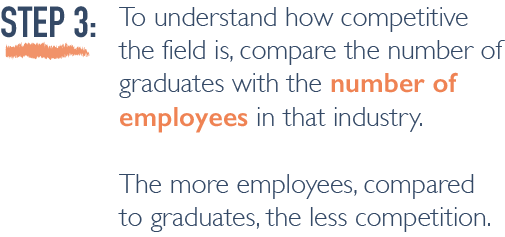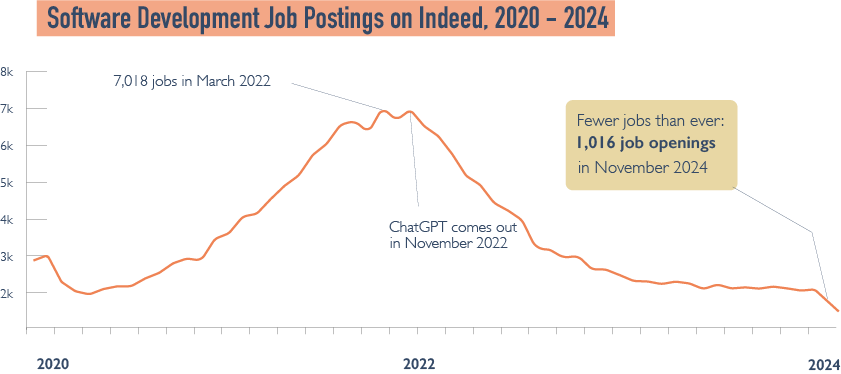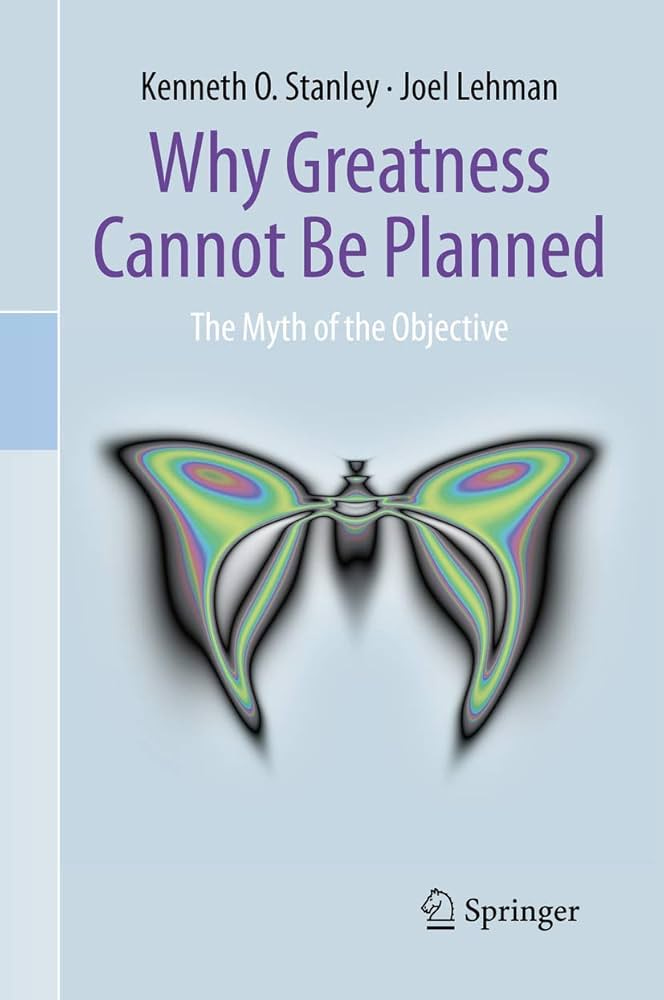5 Steps to Choose a College Major Wisely (in 2025)
How I Would Choose My Career Again, If I Could
Hey there, potential or current college student!
Deciding how to choose a major in college may seem like a daunting task.
You may feel pressure from your parents or the current state of the economy to choose something you don’t like.
Alternatively, you may be totally into something, like fashion, art, or, God forbid, philosophy, and you’re wondering if you should spend the rest of your professional life doing only that.
Fret not modern creature, I’m here to help.
I may be an old fart, but at least I’m an old fart with a Ph.D. degree who works at a university, and I have a few thoughts to spare.
In this post, I’ll give you a formula for choosing your college major wisely. I’ll focus on five steps you should follow.
Search Your Soul
Before you start, you must do some soul-searching and determine what kind of person you are.
Stand in front of a mirror.
Take a look.
Slap yourself a few times, and be honest: are you a worthless piece of crap who cares about nothing except bodily pleasure, or you’re somebody willing to be uncomfortable for an extended period, for the sake of a higher goal?
Because, whatever major you choose, it won’t always be pleasant. You will experience discomfort and pain. Possibly also disappointment and anxiety.
Even if you decide to major in bagpiping or gender studies, there will be moments when you’ll hate what you’re doing.
Nothing is exciting and interesting forever. Not even pink-haired gender studies majors with bagpipes.
So, understand that and make peace with it.
Now, you’re ready to start step one.
Think About Possible Futures
First, make a list of possible futures you’d be OK with.
Find all acceptable possible futures and connect them to majors your college offers. List all majors providing paths to those futures.
Then, ask yourself if you really need a college degree to get there. Will those majors give you the skills you need to achieve any of those futures?
If yes, those are the basis on which you will make your choice.
You’ll narrow that list down and choose only one a bit later, but there are a few more steps you need to do.
Research Your Competition
Next, you’ll have to do a bit of research.
If your reaction to this is “Oh man, do I really have to?”, then college is not really your thing. Go be a TikTok (if that thing is still around) star and sell hair loss products.
Here’s the thing: the labor market changes from year to year, and predicting what career will be hot by the time you graduate is hard.
Just look at the dismal state of software engineering today. Just a few years ago, this was one of the most lucrative majors guaranteed to make you land a job one foot out of college. But today, thanks to the advance of AI, good software engineering jobs are much harder to find.
So, a little bit of research, combined with good critical thinking is essential to make a good decision.
Basically, there are just few pieces of data you have to research for each major on your list:
The number of recent graduates with the same major,
The number of employees in that industry,
The average salary for that job,
The number of job openings corresponding to that major.
One good place to find this data is the National Clearinghouse Student (NCS) Research Center, and the other one is the United States Bureau of Labor Statistics.
Usually, the most complete recent data will be for the previous year, but this will be enough to make rough but useful estimates.
Let me show you how to do this.
The NCS Research Center has a dataset of all degree earners in the United States in the last ten years or so.
There we can see that in 2023 there were 178 thousand graduates of Computer Science, most of which earned Bachelor’s degrees (112 thousand of them), the rest Associates and Certificates.
Those people are your potential competitors.
(For OCD haters out there: yes, I’m simplifying things a lot. I’m assuming, among other things, that all graduates in previous years have already gotten jobs.)
Write that number and put it aside.
More Experts Needed?
The number of graduates alone should not be enough to encourage or discourage you from choosing a particular career. Some careers are ‘hot’ and they need a lot of experts, which is reflected in people’s interest in related degrees.
You need some data about employment in each industry. Luckily, the US Bureau of Labor Statistics has a dataset about employment per industry, where you can see the current trends.
The latest figures look something like this:
As you can see, the tech field is pretty crowded. This may be an indicator that the competition for those jobs is higher than usual. To get a more precise estimate (if you’re a data or math nerd), you could perhaps divide the number of recent graduates by the number of employees in that industry to calculate something we could call the ‘competitiveness ratio’. If you do that for several fields, you may get a better sense of how different career fields compare. This could be useful if you have two or more possible career paths you’re exploring.
This is also the time to compare average salaries across different industries. While following your passion is important, you must have some dough in your life. Being a struggling artist may be fun when you’re young, but it really sucks when you get older.
Note of Caution
When you look at these figures, you have to understand that these are averages, and as summaries of some complex facts such as people’s salaries, they are not always representative of each individual. There may be software engineers who make much more than 95k (I’m pretty sure Google is full of them), or salespersons who cash in more than a meager 62k. Much depends on individual effort, talent, or willingness to work hard, so don’t be discouraged by these numbers. Take them as pointers, not as definite outcomes.
Got Your LinkedIn Profile Ready?
No career prospects assessment is complete without checking if anybody is hiring people in your field. You don’t want to graduate and then realize (like me) that your career is not something employers are super excited about.
In other words, you need some data about job openings in your field.
Job advert websites such as Indeed.com contain tons of information about past and current job openings in various fields. Fortunately, there are enough curious hackers and nerds who scrape this data and give it to anybody interested (like this dataset) to use.
When you analyze the trends for software development jobs, you get a picture like this:
You can easily see the trend here and decide whether the career of a software developer is worth pursuing right now.
Word of Caution
You may look at this bleak curve going down and think that the computer science career is not a promising outlook. I would not blame you if you did think that.
However, there are a few reasons you should not succumb to pessimism if this is the career path you’re most excited about.
First, a computer science degree doesn't not only teach you how to write code. It gives you plenty of transferable skills (like problem-solving) that will always be valuable, regardless of the state of the job market. You should always focus on the broader set of skills gained by a field of study.
Second, this graph is just a short snapshot in time. Look at the x-axis carefully. It only spans four years or so. Based on this dataset, you can’t know what the graph looked like before 2020 (maybe there was an ebb and flow dynamic), and you certainly don’t know what it will look like after 2024. The job market may be in a crunch right now, but that may change.
If you ask me, I am fairly optimistic that the age of AI we’re ushering into will expand rather than constrict opportunities for people who understand how AI works from the inside. Computer science majors, if they play smart, are well-poised to benefit from AI.
Third, I recently read this amazing book (Why Greatness Cannot Be Planned) and one of the main arguments there is that we can’t know what will be the exact result of each next step in our education and learning. The authors examined major achievements and discoveries in humanity and came to a startling conclusion that the greatest discoveries and accomplishments often arise from serendipity and open-ended exploration rather than from rigidly pursuing a predefined objective.
So, no matter what major you choose, there will always be an element of serendipity that makes it really hard to predict the outcome of your professional life. If you’re hard-working, curious, and willing to learn new things continuously, you shouldn't really worry.
Finally
Whatever you choose to do, the important thing is that you follow through and don’t give up.
Becoming an expert in any field takes time and effort. Nothing comes easy, life has always been and will always be a struggle. So, embrace it, be willing to learn, and to sacrifice your comfort temporarily for a greater benefit later.
PS: Feel free to download the infographic below and share it with your friends, lovers, grandparents, or followers on TikTok.
Also, don’t forget to subscribe to Resisting Entropy, to receive more posts like this in the future!
Cheers!
















